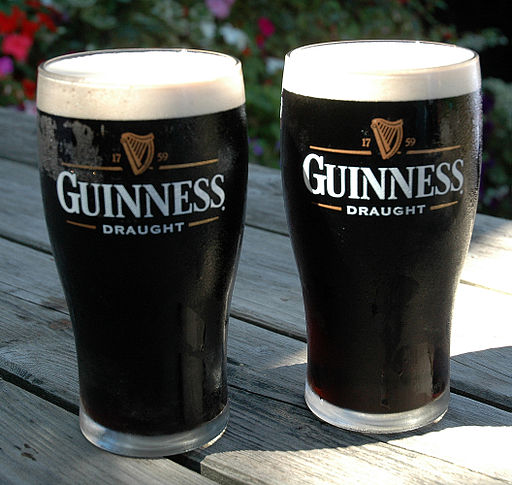IRISH whiskey exporters are feeling the strain of renewed US trade tariffs under the Trump administration, with producers warning of higher costs and growing competition from across the border in Northern Ireland.
Since July, the US has imposed a 15% tariff on EU-produced goods, including Irish whiskey and beer, under a sweeping set of trade measures aimed at narrowing America’s trade deficit.
The move marks the highest level of US import duties in a century and has disrupted a number of Europe’s most important industries.
By contrast, whiskey distilled in Northern Ireland, which falls under the UK–US trade agreement, faces a lower 10% tariff.
The differential has effectively created a new tariff border on the island of Ireland, leaving distillers in the Republic at a disadvantage.
The Irish Whiskey Association (IWA) warned last week that some producers may be forced to “reorientate their focus away” from the US, traditionally the sector’s single largest export market.
Irish whiskey accounts for almost half of Ireland’s total food and drink exports to America.
Under the post-Brexit trade framework, Irish whiskey distilled in the Republic is classified as an EU product, while Northern Irish spirits count as UK-origin goods.
That distinction now has material consequences.
Brands such as Jameson, distilled in Midleton, Co. Cork, face the full 15% tariff, while Bushmills, produced in Co. Antrim, pays only 10%.
The 5-point gap may seem small, but producers say it can make a meaningful difference once supply chain costs and pricing pressures are factored in.
While Scotch whisky enjoys the same 10% rate as Northern Irish producers, it too is pushing for relief.
Scotland’s First Minister John Swinney recently travelled to Washington DC with representatives from the Scotch Whisky Association to press for a “zero-for-zero” deal, ending tariffs on both Scotch and American bourbon.
Irish distillers have been responding by focusing on Asian and African markets, where demand for premium spirits is growing rapidly.
In 2024, Irish whiskey exports reached over €1bn, a 13% increase on the previous year.
Exports to China grew by 33%, while India saw growth of 57%, according to the Irish Consulate in Hong Kong.
“Irish whiskey is seeing a global resurgence,” said Padraig Seif, president of the Irish Chamber of Commerce in Hong Kong.
“But 2025 has been a challenging year, with the 15% tariff imposed by President Trump on EU products.”
At the Hong Kong International Wine & Spirits Fair, Irish distillers from Lough Ree, Dingle and Walsh Whiskey promoted their products to new distributors.
“We are suffering from US tariffs. These are challenging times for the industry,” said Peter Clancy, CEO of Lough Ree Distillery in Co. Longford. “New markets are important.”
 Guinness owner Diageo is also feeling the pinch (Wikimedia Commons)
Guinness owner Diageo is also feeling the pinch (Wikimedia Commons)While the EU grapples with the 15% rate, the UK continues to seek further tariff relief from Washington.
The British Consul General in Chicago, Richard Hyde, said talks were ongoing with the Trump administration to reduce tariffs on both steel and whiskey.
“We just need to keep pushing, keep pressing to remove tariffs where we can,” he said, according to Bloomberg.
“Whiskey is absolutely a priority for us.”
The US is the largest market for UK and Irish whiskey combined, with tariffs estimated to be costing the Scotch Whisky Association about £20m (€22.7m) a month in lost exports.
US industry groups have warned that retaliatory duties could also hurt American businesses.
A coalition of 57 US trade associations, calling itself Toasts Not Tariffs, said in a recent letter to President Trump that duties on wine and spirits could lead to 25,000 job losses and $2bn (€1.7bn) in lost sales across the American hospitality sector.
For Ireland, the impact of US tariffs varies sharply by industry.
While pharmaceuticals and medical devices, which account for around 65% of Irish goods exports, have largely avoided new duties, whiskey producers have not been so fortunate.
Former US Commerce Secretary Wilbur Ross, speaking at a public interview at University College Dublin recently, said Ireland was likely to avoid “the most painful consequences” of Trump’s trade policies.
Ross, a long-time Trump ally and investor in Bank of Ireland during the financial crisis, said recent deals between the White House and large drug firms such as Pfizer had eased tensions in the pharmaceutical sector.
But he acknowledged that tariffs on spirits would remain a significant burden for smaller exporters.
“It may be pharmaceutical employment here won’t be the big growth engine that it has been, but I don’t think people are going to walk away from Ireland,” he said.
Industry representatives say the combination of higher tariffs, rising costs and volatile trade policy has made long-term planning increasingly difficult.
Danny McCoy, CEO of employers’ group Ibec, said businesses were operating “day by day at the expense of longer-term investment planning”.
Economists warn that the US economy itself could face risks from escalating tariffs, with early signs of slower job growth and higher inflation.
A potential US Supreme Court ruling on the legality of Trump’s tariff powers could also reshape or even remove them entirely.
For now, Irish whiskey producers are focusing on adaptation.
With more than 50 distilleries north and south of the border, the sector has shown a remarkable ability to evolve over the centuries.
But as one distiller at the Hong Kong fair put it, “We’ve survived wars, Prohibition and pandemics. We’ll survive tariffs too, though we’d rather be toasting without them.”

